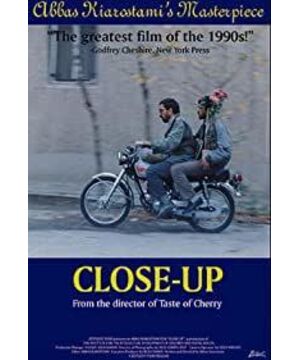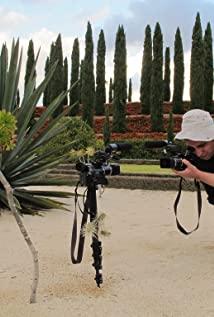Thematically, watching this movie has a big impact on me, and it can resonate at once, because Sabzien and I are both movie fans and are crazy about movies, so most of the time was wasted and It is not understood, and it is often regarded as a plaything. It's normal to look at Sabzian from a fan's mentality. His impersonation of director Marc Malbaf is the ultimate pursuit of this art, and I agree with it with both hands, because I have experienced it too. As we all know, the success or failure of a movie mainly comes from the ability of the director. Of course, a good script is also important, as well as the acting skills of the actors. But the main role is the director. A good script may have different ideas after different directors understand it, and some of them become mediocre works. No matter how well the actors perform, the director's performance in the pre- and post-production is average and the effect is good. It is also conceivable. Therefore, the director's job is mainly to splicing together each picture perfectly, so that the audience can feel the smooth beauty of the picture. As for the issue of consciousness, that is, what the movie says is for the audience to understand.
Abbas Kiarostami's "Close-Up" uses realism as the theme, but formalism in its expression. The film is roughly divided into two parts, recalling Sabzian's deception process and the trial records of Sabzian's trial. The two parts are interspersed back and forth, and the filming techniques are very different. The scam part adopts a general narrative process, while the court trial adopts a record-type.
The deception part was filmed according to the way that the film is usually used now, and the editing, length, and scene scheduling of the picture reflect the whole fact smoothly. These effects add up to make the picture feel so smooth and clear. If this part came out on its own, we'd think Sabzion was a nasty liar and don't have to sympathize with him. If so, the film would be a flop.
The trial part adopted a documentary technique, without adding any background and optical special effects, and directly used a long lens to express the process. Friends who have seen this film will have a feeling that the process of Abbas Kiarostami's close-up shooting of the court trial gives a sense of blur, regardless of whether the picture is Sabzian or the victim and the court. Everyone else in the room is treated fairly, and this vagueness without any modification just gives us a sense of reality, making us believe that the current picture is not a deliberate performance but a real record. So when Sabzian stated that he pretended to be Mark Malbaf in order to obtain a long-lost dignity, he experienced a joy that he did not usually have. More importantly, he got an unprecedented artistic pleasure. But Sabzion also realized that this was wrong, repented from his heart and asked for forgiveness from the victim.
The film finally achieves a state of harmony, with the real Mark Malbaf taking Sabzian to the victim's house for a happy ending. I have an inexplicable sense of loss here. Is this the director's real thought? After careful experience, I suddenly realized that this is the genius of Abbas Kiarostami. He used two methods to set off the moral of the film: the reality is extremely clear, and the dream seems a little distant and fuzzy. This reminds me of the words of Abbas Kiarostami: Dreams must be rooted in reality.
View more about Close-Up reviews








